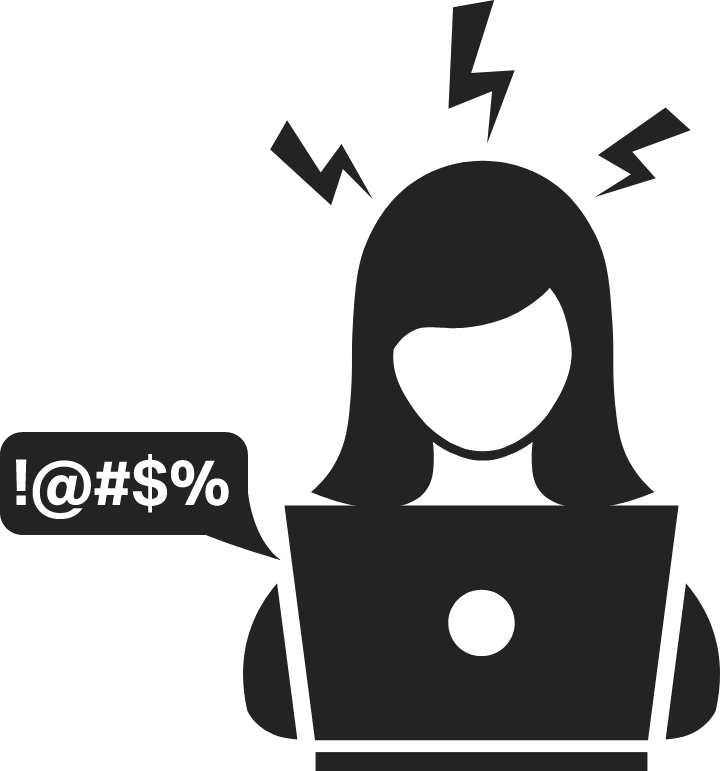The WNBA is ramping up its efforts to combat online hate. The Chicago Sky and Moonshot, a company that has its roots in counterterrorism and national security work, are teaming up to keep players safe.
What is the WNBA doing to fight online hate?
One year ago, the Sky announced a mental health campaign called “Block The Negativity, Post Up Positivity” in hopes of influencing change online and to better help players deal with negative comments and threats. Moonshot’s technology takes that a step further.
The company utilizes artificial intelligence and other tools originally developed to assist governments in identifying and assessing online threats related to terrorism, extremism and recruitment. CEO Vidhya Ramalingam said she had an instant connection with Sky co-owner Nadia Rawlinson when she reached out to get help in solving a growing problem.
“Our objective as we deploy this national security technology in the sports world is to help athletes just be able to feel safe, to provide that reassurance that they don’t need to worry about this, they can focus on the game,” Ramalingam said.
How will Moonshot help?
Unbiased. Straight Facts.TM
Moonshot, a company focused on counterterrorism, says that 92% of women in the public eye have faced online abuse, with 31% of that being sexual in nature.
As interest in women’s sports rises, so does the WNBA’s popularity; the league set an all-time attendance record last week. That popularity has led to an increase in online hate and vitriol toward players and teams. In April, commissioner Cathy Engelbert announced a task force to combat the issue league-wide.
“There is just a continuing drain on all of us,” Engelbert said. “On players, on staff, staff at our teams, I’m sure on all of you too, just continuing unaccountability for people who type things on social media, and our players are digital natives, they are in their 20s, and they take everything very hard, and it’s a toll on them.”
Moonshot monitors information in the public domain, including more than two dozen internet and social media sites for negative comments and threats. That information is categorized and then sent to a team of human threat assessors, including clinical psychologists, social workers and former law enforcement personnel, who act on it if needed.
“We’re providing evidence packs to the team, to the athletes, to ensure that if they want to take any further action, whether it’s legal action, whether it’s actually banning individuals from attending games,” Ramalingam said. “We want to make sure they have all the data that they need to be able to facilitate those next.”
Why is this technology needed?
Last year, the company flagged threatening posts directed toward Indiana Fever star Caitlin Clark, which eventually led to the January arrest of a 55-year-old man in Indianapolis. He was charged with stalking Clark and was later sentenced to two years in prison. Ramalingam said social media companies have pulled back on their commitments to trust and safety over the last few years. Relying on those companies at this stage will not work.
“So we recorded, last year, in our work to protect athletes, we recorded a 28% takedown rate for all posts that actually violated the terms of service of the platforms themselves. By this summer, that removal rate had declined to just about 6%,” Ramalingam said. “So, it’s really shocking how poorly the social media platforms are actually abiding by their own policies.”
Will other teams use this technology?
In the work that Moonshot has done monitoring threats for the U.S. government, the company found 92% of women who are in the public eye have faced some form of online abuse, and 31% of that is sexual in nature. The numbers are similar in women’s sports, and among adults 30 years old or younger 64% have experienced online harassment. Ramalingam believes the first-of-its-kind partnership with the Sky will soon become the norm.
“I suspect that this will, over time, become the new standard, the minimum requirement for protecting athletes,” Ramalingam said. “I would not be surprised if you see news over the next several months of other teams that are taking this on.”
Ramalingam said that by the end of the season, she believes the Moonshot team will have compelling evidence that demonstrates just how ineffective social media platforms are at actually abiding by their policies, and the company fully intends to hold them to account.
Click this link for the original source of this article.
Author: Ali Caldwell
This content is courtesy of, and owned and copyrighted by, https://straightarrownews.com and its author. This content is made available by use of the public RSS feed offered by the host site and is used for educational purposes only. If you are the author or represent the host site and would like this content removed now and in the future, please contact USSANews.com using the email address in the Contact page found in the website menu.





